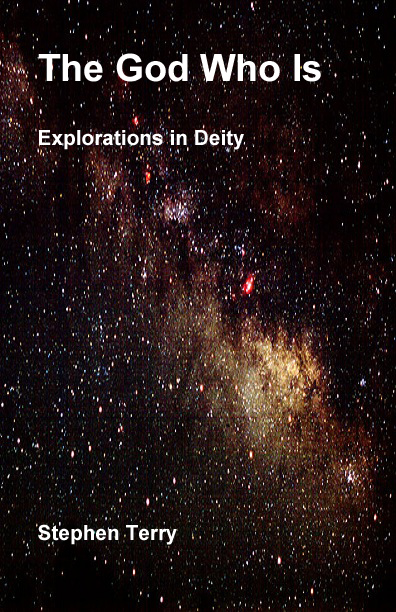
Stephen
Terry, Director

Language, Text, and Context
Commentary
for the May 16, 2020 Sabbath School Lesson
 "He said, 'The knowledge of the
secrets of the kingdom of God has been given to you, but to others I speak
in parables, so that,
"He said, 'The knowledge of the
secrets of the kingdom of God has been given to you, but to others I speak
in parables, so that,
'though
seeing, they may not see;
though hearing, they may not understand.'
This
is the meaning of the parable: The seed is the word of God."
Luke 8:10-11, NIV
With the
advent of Internet social media and search engines, we have seen the
development of pseudo-scholasticism. It is an era where too many believe that a
15-minute search on the web trumps a lifetime of education and experience in a
specialized field. A plumber might tell an immunologist that they know more
about vaccines than the doctor and the doctor should listen to and accept their
summation of what it is all about. However, if the shoe were on the other foot
and the plumber was installing water lines in the immunologist's house, they
would perhaps deeply resent the doctor doing the same to them, wanting the
plumber to watch a video about how the plumbing job should be done right.
By
rights, one would have thought that carrying access to so much information around
with us would lead to a new Age of Enlightenment, eclipsing the original from
several centuries ago. But instead, like a computer virus slowing and crippling
a personal computer, the sources we all draw upon have been mired in fantasy
and outright lies, making it difficult, if not impossible, to ferret out
reliable information. We used to say, "Seeing is believing!" But with the
ability to digitally manipulate not only recordings, but photos and videos so
that it may be hard to discern genuine images from fake, even that old saw has
become meaningless. Force of personality rather than facts becomes the new
reality, because everything that differs from what someone might believe is
just "fake news." So find an appropriate echo chamber that parrots what is
pleasing to us, harass and exclude those who do not accept the authorities we
do, and recruit others to bolster the numbers joined to the information bubble
we are supporting. If possible, infiltrate other, differing groups and try to
recruit from their membership by engaging in trolling and debate, all the while
refusing to entertain facts inconsistent with those that we reinforce in our
home group.
On
some level, we as Christians may foster this kind of behavior if we evangelize
by drawing upon global or even galactic conspiracies we claim are afoot to
defeat the good and uplift the evil. Apocalyptic passages in Daniel and
Revelation, and to a lesser degree the Old Testament prophets lend themselves
quite readily to being manipulated into vast conspiracies. It does not take
much more to extrapolate that into more detailed conspiracies by Bill Gates,
the Catholic Church, or some Jewish cabal to inflict upon each of us the Mark
of the Beast from Revelation, chapter 13. Unfortunately, fear has always been
an excellent tool for manipulating others, whether it is telling people they
will burn eternally in Hell if they do not repent and accept Jesus, to telling
them that they will get the Mark of the Beast and be lost for similar reasons.
But even a cursory reading of the gospels reveals that people were drawn to
Jesus because of his love and compassion, not driven to him by fear and manipulation.
Sadly, many churches and their members seem to have lost sight of that.
The
situation is not made any better by the myriad numbers of pseudo-experts in the
field of theology. Many are easy to spot because they are more apologists than
theologians. This means they approach arguments from the assumed position that
they are right and everyone else is wrong. Their arguments then defend their position
as God's position, implying that they have an inside track with God that others
need to assume and appreciate. They are often controlling, and when their
arguments do not prevail, they give those who disagree with them to Satan, Hell,
or some similar form of banishment. The cross they impale their foes on is often
constructed of proof texts removed from context and electronically scotch-taped
together to support their portrayal of a vindictive, vengeful God who will punish
everyone who does not agree with their insider perspective.
In
the past, it may have been enough for a well-trained theologian to point out
that some were forcing the Hebrew, Aramaic, or Greek to say things that are not
really supported by the text in its original language. But with the
proliferation of interlinear Bibles, many think this makes them skilled in
those underlying languages. Interlinears have the words of a version of the
original language written in the space between the lines of the modern
translation. The idea is to allow a literal word-for-word or phrase-for-phrase
comparison between the modern and the ancient. In a sense, they are like
lexicons except that lexicons will often provide several equivalent words and
interlinears, due to space constraints, usually cannot. This means that the definitions
in an interlinear tend to be somewhat forced. But without a knowledge of the
languages and how they were used at the time the passages were written, it can
be hard to compensate for such shortcomings. Experience with the languages
tends to produce humility due to the possibilities for inaccuracy in
translation, so theologians, trained in biblical languages and textual
criticism, as they should be, are often less dogmatic about their faith than
apologists tend to be. Apologists tend to deny the possibility of biblical
errancy, and as though it were a magical tome, hold that inerrancy is necessary
for the Bible to "work." Theologians, on the other hand, can readily see the inconsistencies,
errors, and contradictions, yet still marvel that the Bible has an inherent
ability to change lives, lifting people from self-destructive behaviors to a
positive and healthy life through a relationship with God. That, coupled with
its ability to continue to be a best seller, translated into over half of the
world's principle languages, even after all these many centuries, is enough to
garner respect for such a work.
Although
theologians may be considered the trained professionals when it comes to the
study of the Bible, they also acknowledge that the Bible is well able to
function for its major purpose without an in depth study of the languages
behind it. Whether the Septuagint, the popular Greek scriptures of Christ's
day, the Hebrew and Aramaic Masoretic text, the Latin Vulgate of Jerome, the
1611 King James Version, or the more modern Revised Standard Version or New
International Version, these and many others have changed the lives of
countless individuals by introducing them to a relationship with Jesus Christ.
Apologists
may feel threatened by the work that theologians do because of its questioning
nature. It may appear to be safer to remain within the cloister walls defending
safely from the parapet against all attackers, but the work of the theologians
who go out into the surrounding countryside to learn what they can is also
essential. Instead of waiting for the people to come to them, they go to the
people and learn thereby often as much as they teach, sometimes more. Apologists
tend to see God's mercy focused on the church and his wrath focused on
everything else. Theologians recognize, like Habakkuk and Job, that God's ways
are inscrutable, and he is as likely to be found touching the heart of a
prostitute as that of a nun. They are comfortable with the words of Habakkuk, "The Lord is
in his holy temple; let all the earth be silent before him." (Habakkuk
2:20) or those of Job, "Though he slay me, yet will I trust in him" (Job 13:15).
Even though it may not make sense to do so, these individuals persisted in
faith in God's overriding purpose for their lives. This is the kind of faith
that allows one to venture into strange territory, seeking those who are
different from us but who might be looking for some insight to their own struggle.
Over
500 years ago, the monk, Martin Luther, discovered that it was not about having
all the answers, the approval of the church, or even the purity of one's life.
While ascending the steps of the Scala Santa in Rome, he realized that it was only faith that
made the difference. It was the power of that simple revelation that eventually
brought an end to Rome's spiritual stranglehold over Europe. It can be just as
powerful in the lives of each one of us, overthrowing our discouraging life and
replacing it with a sense of purpose, hope and future possibilities. Faith is
the key, "because anyone who comes to him must believe that he exists and
that he rewards those who earnestly seek him." (Hebrews 11:6)
We too
often make it all a matter of timelines, charts, beastly images, precise dogmas
and strict obedience, but the same one who was not afraid to get down in the
mud with spit to cure the blind, is not afraid to do the same today, walking with
lepers, giving hope to those whose hearts have been hardened with abuse,
setting free those with mental incapacities and bound with chains among the
tombs of addiction, and bringing light to those in the darkness of depression. While
I enjoy the study of theology, I will freely admit that God often does all of
this without a person knowing Hebrew or Greek, without preferring a particular
translation of the Bible, and even without seeking my approval, for who am I to
parcel out grace to his children? That is the greatest blessing of all and God's
gift to the world.
